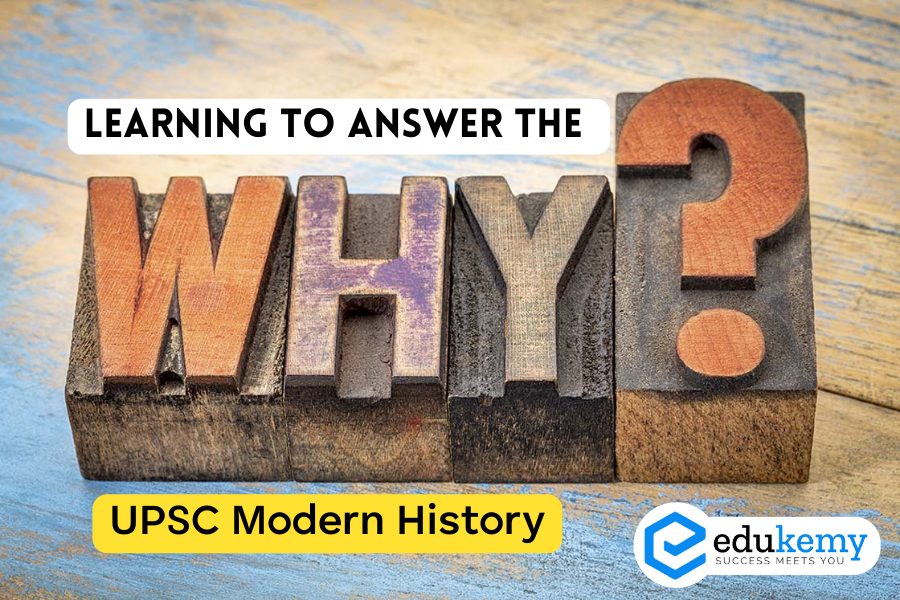Learning to Answer the “WHY”- UPSC History!
In UPSC Mains 2017, the following question was asked:
Now we know HOW the colonial power destroyed the Indian Handicraft industry, but why did the Britishers ruin Indian Handicrafts?
Would you be able to write an answer to this? At first, you might as well start writing the “HOW” part, despite it not being asked in the exam.
This is the first step towards writing an answer. YOU HAVE TO KNOW THE QUESTION WELL.
In the exam hall, we take one look at the question – see the keyword, and start writing whatever we know!
But to ensure that we are writing the right things, we need to build this habit of understanding what the question is demanding.
To be able to answer “WHY” parts rather than “WHAT & HOW”, is the real test of in-depth understanding. While reading a topic, you need not just read how things happened, but rather why things happened!
The decline of Indian handicrafts under British colonial seemed to be a deliberate policy of destruction. This destruction was a consequence of various economic, political, and cultural factors inherent in colonialism. Here’s why this happened:
- The Agenda of Industrialization – The British promotion of industrialization in India was to serve their interest primarily. They wanted to increase the profits of British industries & traders, who helped the Company! Thus, they imposed tariffs, duties, & other restrictions on locally produced handicrafts!
- Mercantilist Policies – The Britishers aimed to accumulate wealth! Indian Handicrafts – for them, was a hindrance to this agenda! They didn’t want these local industries to compete with their manufactured goods!
- Cultural Superiority – The British Colonial Mindset viewed Indian culture including Indian Handicrafts as backward compared to British Culture. British administrators encouraged adopting consumption patterns & lifestyle – eroding the demands of Indian Handicrafts!
- Taking hold of Social Life – The British colonial administration sought to control Indian society & ensure their dominance! Disrupting traditional economic structures like Handicrafts, meant exerting control over the local population!
British wanted economic dependency which would help them govern India while extracting resources to their benefit!
The UPSC CSE Exam is not your university level exam – you don’t get marks for filling the pages!
Instead, what UPSC demands is in-depth understanding – the focus on YOUR UNDERSTANDING of the topic – of course after knowing the context!
We fulfill these requirements in our GS Integrated Batch, where Uttam Sir takes you through the depth in History!
Click on the following for details!
You can also join our Telegram Channel – Link to Telegram Channel!

